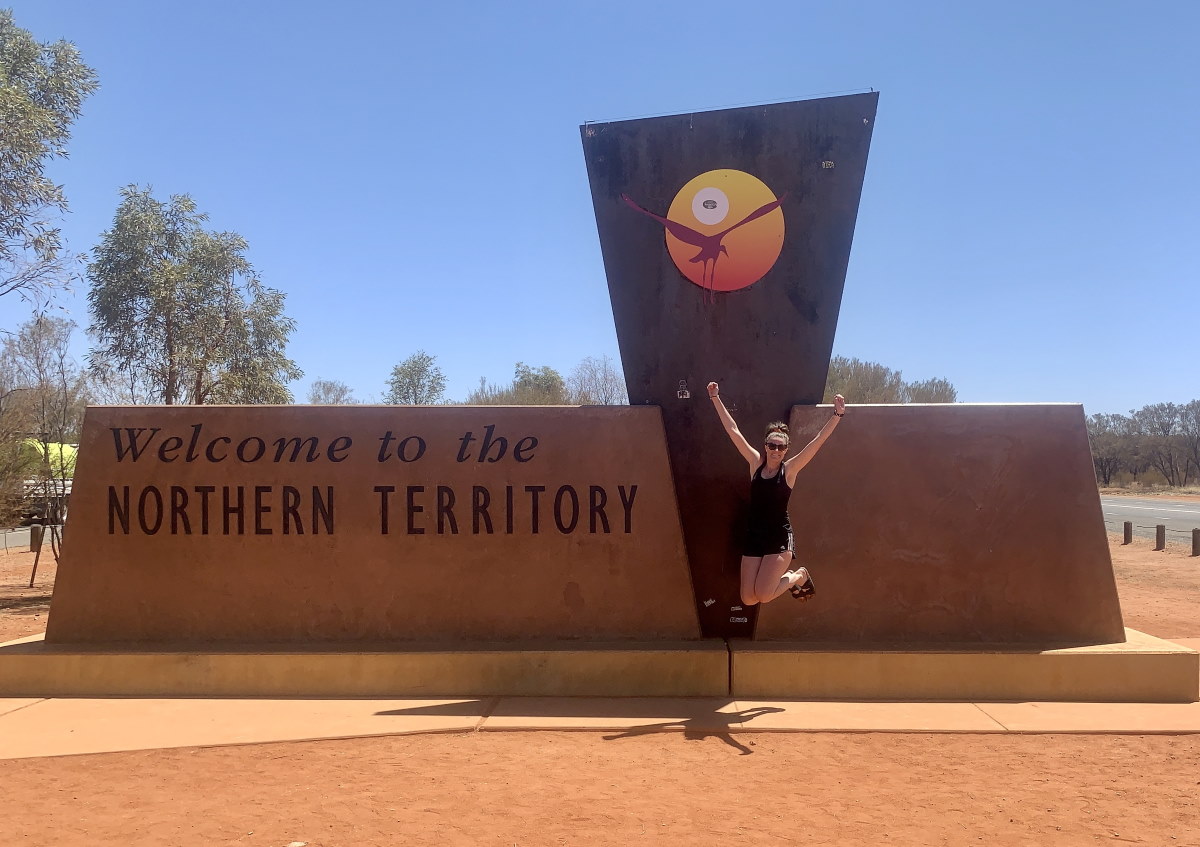
Radiation Therapy student, Hayley Fairless was supported by Flinders NT during her 18-week placement at the Alan Walker Cancer Care Centre (AWCCC) in Darwin. She talks about the AWCCC approach to care as well as her professional and personal growth as a result of her placement experience.
Read about Hayley’s experience below as published in the autumn 2020 edition of the CRANAplus Magazine.
Insights and understanding
Hayley Fairless, fourth-year Medical Radiation Science – Radiation Therapy student at Charles Sturt University in Wagga Wagga, felt very fortunate to participate in an 18-week placement in Darwin at the Alan Walker Cancer Care Centre (AWCCC). Here’s her story.
Being a challenge-seeker at heart and someone with a strong interest in rural and remote health who loves the outdoors and exploring, this was an opportunity like no other.
The AWCCC is the only radiation therapy centre in the Northern Territory, delivering treatment to a wide and diverse range of patients, some of whom have to travel thousands of kilometres
to receive treatment, far from family and friends, for extended periods.
The centre boasts two Elekta Linear Accelerators that are currently being upgraded to Agility machines with HexaPOD couches, enabling increased treatment precision and speed of beam shaping. This experience provided me with insights into how a department operates in this time of transition, as well as how the adaptive nature of the staff, professional attitudes and cohesion of the multidisciplinary team testifies to a seamless and proficient experience for patients.
Due to the laid-back nature of Northern Territory locals, I was able to feel a sense of comfort and home in the NT very quickly.
The staff taking me under their wings and including me in numerous events around Darwin as well as weekend trips to Litchfield National Park and Djarmalak Concert on Country, gave me an increased understanding of the Indigenous Australian culture and the communities that some of our patients are travelling from.
The AWCCC possesses an inter-professional approach to care that is like no other. Not only does the department have common respect for each other, making a happy and collaborative environment for both staff and students, but the centre also has a very strong dedication to improving the Indigenous Australian health outcomes.
The inter-professional connections between both staff within the centre and with health professionals in the communities are very strong, with steps and initiatives to improve cancer education and in turn provide access to earlier cancer care.
I found this to be an excellent experience, developing a much stronger understanding of the issues that are present within health gaps, what is being done to help improve this, and what could be done in the future.
I was able to see first-hand the difference in health outcomes for both Indigenous and non-Indigenous Australians and the impacts of living remotely. Because of this experience I have been able to develop my communication skills and ability to handle situations that require emotional sympathy and support in a culturally competent way to patients that are struggling not only with their diagnosis but also the stress of being away from family. This distress is often exacerbated because, in some cases, the patient is alone in Darwin with no immediate social network for support.
I have grown professionally and personally through my time here and I strongly encourage students to consider the Alan Walker Cancer Care Centre as a placement opportunity. I also urge all students undertaking rural and remote placements to immerse themselves and remain open-minded to the potential differences that arise, to gain the most from the experience.

